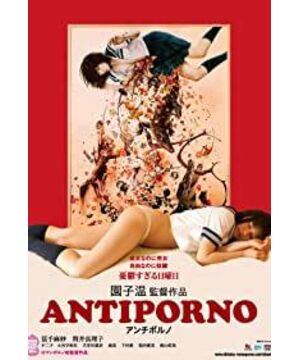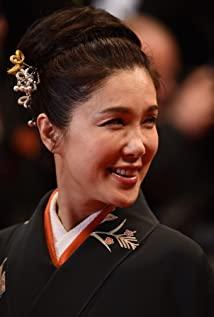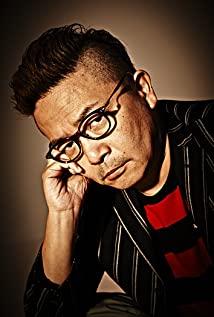In 2016, "Rihu" started a century of business, and invited five directors, Yuan Ziwen, Xingdingxun, Nakata Hideo, Yantian Akihiko, Shiraishi and Miyano, to remake the powder film. The funds are limited, and the time limit is one week. It can be said that it is a propositional composition. But it is estimated that no one expected Yuan Ziwen to complete a contemporary art work in the form of a film, and finally submitted an argumentative paper.
This "Antiporno" is translated as "anti-erotic" in Chinese, but porno is originally regarded as "erotic" - if porno is translated as "erotic", how should erotica be translated? However, although the so-called "Roman Porno" has porno in its name, it is indeed not "pornography". After all, the birth of this film type was originally related to the review of pornography by the Film Ethics Committee.
Anyone with a little bit of film reading experience (…) must be able to see that, from the most common rape and voyeur plots, to SM’s dog slave training, sexually inverted dildo, to the cake smear and oil paint at the end, this film "Porn" is full of parody of real "hard porn" (AV). Sonoko’s erotic imitations and her outright anti-pornography make the viewer wonder that the very nature of pornography—those things that differentiate porno/porn from erotica, or whatever—may not lie in nudity The exposed pictures and plots are elsewhere.
According to the definition of Lin Fangmei's "Pornography Research", pornography is pornography because it is a "media representation that exposes sexual organs and depicts sexual behaviors". But things are not that simple. Porn is not just a representation of our sexuality, it also shapes and even defines our sexuality.
In the words of the father to Kyoko in the film:
Don't say male genitalia. (When having sex with a prostitute,) a man inserts his dick (ちんぽ), and the male genitals are completely different from the dick.
Thus, in a real fornication, the "dick" is not only an anatomical genitalia, but also becomes the aggregate of all publicly displayed fornication in ancient and modern times. It refers to each publicly depicted phallus, completing the "erotic" reproduction with each penetration.
By imitating our sexuality for decades, pornography has taught us how to have sex properly, how to have sex with a prostitute properly, and what’s not proper sex and what’s not proper but still pleasurable sex. Therefore, like this "Anti-Erotica", it seems to be the most direct way to "anti-pornography" by deliberately inverting the normal and abnormal in the parody of pornography.
In the movie, Sonoko Wen shows us the foul language in the lines, the madness of Kyoko, the rejection of orgasm by Kyoko with vomiting, the practice of SM, the inversion of sex, and the fantasy of a slut. Outside of the movie, these plots echo Foucault's "resisting social discipline with personal experience", Baudrillard's "women refuse to interact with AV by retaining the right to orgasm", and Rubin's "The emancipatory fisting club with a disruptive class"...
But when the film reaches one-third of the way, the camera suddenly turns from the highly saturated red and yellow two-color set to the director and staff on the other side of the studio, and the plot also turns: it turns out that the SM game that challenged the audience's nerves was just a part of the actors. Acting skills, the power relationship in the play is also completely reversed in reality - the master of the SM game, the artist Kyoko who is bossy to the manager Noriko, turned out to be just a rookie actor who has been abused and bullied outside the play.
As a result, the previous "revolutionary picture" of "ironizing the porn industry with erotic films" was temporarily disillusioned. Yuan Ziwen probably deliberately self-dissected himself, so that the audience could see clearly: no matter whether it is "pornography" or "anti-pornography", what is exposed after removing the crimson paint is nothing more than the reinforced iron bones and silicon crystal chips of the cultural industry - as A director who tries to use one cultural product to oppose another cultural product, struggling in the fate of consumerism and mutual consumption, may only end up deceiving himself.
Just like Mamyo Tate, who played the leading role of Jingzi, a meta idol and photo model from AKB48, who was tapped by a famous director to shoot R18+, anyone would think that this is another Wakato actress who was cultivated or even "produced" by Yuan Ziwen. So, whether in the drama of "Anti-Erotica", outside of the drama, or outside of "Anti-Erotica", how hypocritical and how much is the subtle subjectivity of being an actress and a human being? reality?
After the reversal of the plot, when Kyoko wept under the abuse of the director and senior Noriko, and started filming Take Two with a trembling voice (here the tactile acting skills just burst), the film's concept has shrunk from "antiporno" (antiporno) Became "anti-antiporno" (anti-antiporno). Here, I can almost see a creator trying to resist something collapsed in questioning himself about the meaning of the work—like the lizard raised in a bottle, unable to find a way out. This is a desperate moment in the film.
In the short 78-minute film, the director has put a lot of social issues into it from mid-range: lack of family sex education, youth gender-based violence, feminist movement and even "anti-security".
Of course, the security struggle, as an artistic theme that has continued since the late 1950s, is no longer as simple as a political movement. Behind the parliamentary chamber in Act 1 stands a series of behemoths: Big Brother, right-wing government, knowledge as power, social patriarchy... They are all complicit here. Opposite them is revolution as aesthetics, not history or politics. It is in this sense, then, that a person who wants to be free does not need to march on the streets, but should be a prostitute.
This is also what the lines that Kyoko and Noriko shouted repeatedly pointed to:
I'm going to flush all the bullshit freedom that's imprisoning me down the bullshit sewer, the so-called freedom of speech in this country is like rubbish, I'm going to stuff it in the shit. Japanese women have all been killed by freedom, deceived by so-called freedom, which on the surface seems to be praising freedom of speech. Listen, no one in this country has ever really enjoyed freedom, women just cling to freedom, become slaves of freedom, dance with them, and pretend to be free. They are not as free as the cheapest prostitute on the side of the road, it is freedom toying with them.
Dead dog, enjoy the shit freedom of being a dog! Are you a prostitute?
But what exactly are we talking about when we talk about the liberty of prostitutes? In what sense did prostitutes achieve true liberation? This problem is almost insoluble: that "freedom" obviously does not exist in any sexually exploited prostitute in the real world - it only exists in the courtship and devotion of Heko in "Setting Sun", and it exists in O's mother's relationship with René and He In Mr. Stephen's surrender, it exists in the tears shed by Mary Magdalene for Jesus... After all, it only exists in the vague resistance, in the fantasy of every punk girl.
When the film went into play-in-play for the second time, Kyoko became a young artist again, and Noriko resumed her role as a manager. When Jingzi woke up from the dream and shouted, "It's all a lie, die for me, die for the crew, die for the director, die for the movie", Noriko asked inexplicably: "Huh? You Who are you talking about? The crew? What are you talking about?"
The plot becomes almost a narrative trick here - what exactly is a dream and what is reality? The boundary between dream and reality was blurred, and the audience could not judge whether there would be another director calling CUT, and Jingzi fell into the humiliating reality of being cursed again... Or was it just a dream at all? Or is "reality" itself an unfinished series, a nightmare that will never wake up?
All the audience were sneering and watching us play the monkey show, sitting in the auditorium laughing at us. This is not my life, my life is not like this.
She's an amazing whore, and she's doing me a disservice, just like all the whores in the world. I also have a normal life...I have a normal life, it's just acting. Here is a stage, I play her life, play a neurotic woman.
But that's not my life.
In the final analysis, subculture itself is a kind of "pornography", which is created by mainstream culture as a floodgate, and at the same time enjoys the lewd and obscene pleasure of exploiting ideological loopholes. But it can't breed an ideological revolution at all, as if we couldn't oppose our own language with our lower body.
Moreover, when a creator truly grasps the full picture of the subculture product line - from a Wakata actress like Kyoko to an industry veteran like Noriko - can he still be saved by the power of subculture? This seems to be irreversible disenchantment. The state of our erotic fantasies, tainted by violence but still pure, is unattainable, one cannot be both a prostitute and a virgin. Unless he, like Kyoko, insists on using self-deception to lick the wounds brought about by mainstream society.
So the question goes back to porn. If the film industry is like a pornographic studio, where pictures, actions, language, and all symbols are defined long before filming, then what is the point of creation? If this social autophagosome is like a porn set, reproducing our desires, what's the point of life? The film is filled with so much debate, despair, struggle, and emptiness that it's almost tiresome.
Compared to the universe, life is like a pile of scum, isn't it? The universe is always like a super cold refrigerator. Compared to the universe, my life is only one second. No, not even a second.
There is no such thing, you live your second.
This is really all-purpose chicken soup to comfort nihilists. But in the world of nihilists, only the sense of nihilism is real, only the frustration of "I'm a useless wretch" is real, only the traumatic memories of being raped, witnessing parents having sex and my sister committing suicide are real, only depression , self-loathing and self-destructive impulses are real, "But can this be blamed on me?"
Under repeated self-examination, the grand cultural image was deconstructed, and what remained were only the most insignificant and most life-like false emotions.
The possibility of creation is denied, the only thing that can be done is deconstruction. In the end, the simple set has already been seen through by the audience. Jingzi and Noriko repeatedly alternately played each other's roles. In the recitation, the script was read out word for word...
Using techniques to deconstruct techniques and techniques to deconstruct techniques, the film itself is dismantled; the paradox of "pornography" and "anti-pornography" is also dissolved, and "meta-porno" as a context and component is displayed, And the answer was thrown to the audience; the images of rape disappeared from the screen, and even the memory was dismantled... The film finally ends with Kyoko's violent cry of "Where is the exit?" "Give me the exit...", and the beginning The lizards who couldn't escape the plastic bottle echoed each other, and the end-to-end correspondence can be said to be a perfect composition.
So where is the exit? In fact, from the role of the younger sister who always smiled sweetly and played the piano, and finally her boyfriend stabbed him to death, it can still be seen that the old uncle Otaku still has to believe that (punk) beautiful girls can save the world. (laugh)
Digression: You should be able to see the opening and closing of the meal. In the audition scene, the scene where Sote Mamiao shouted "I want to be a prostitute" is too much like a girl shouting "I want to be an idol" to Fei Qiu during the AKB audition. Contact casting & sailor suits, it's ironic that akb48 (and the entire idol industry) "soft porn business" should be taken seriously. I don't know if Yuan·Death's eighth period Shengshou Mamiao finished this film, whether it is a revenge for being dismissed by AKS collectively that year x
View more about Antiporno reviews









